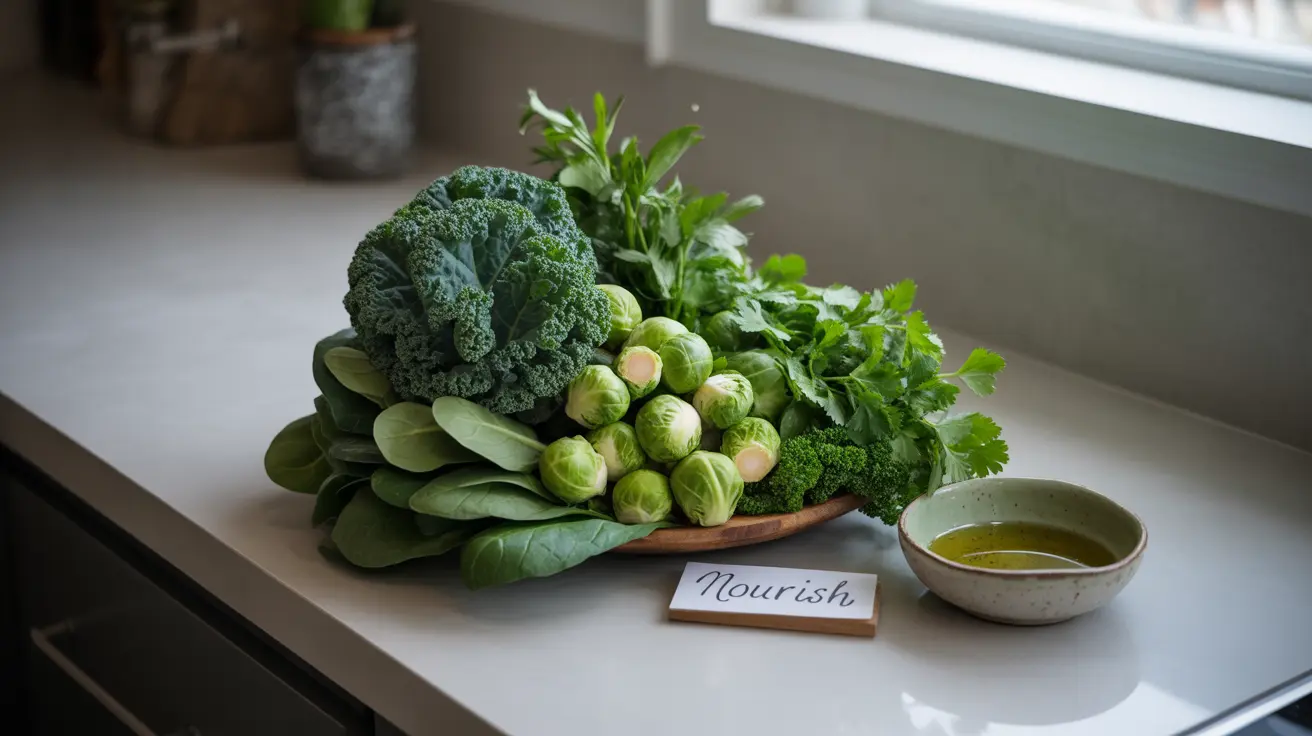Understanding the importance of vitamin K in your diet is crucial for maintaining optimal health. This essential nutrient plays a vital role in blood clotting, bone strength, and overall wellness. Whether you're looking to prevent deficiency or simply enhance your nutritional intake, knowing the best food sources of vitamin K can make a significant difference in your health journey.
In this comprehensive guide, we'll explore the most beneficial vitamin K-rich foods, understand how this vitamin supports your body, and learn practical ways to incorporate these nutrients into your daily meals.
Top Sources of Vitamin K in Food
The following foods are exceptional sources of vitamin K and can help you meet your daily nutritional requirements:
Leafy Green Vegetables
Dark, leafy greens are among the richest sources of vitamin K, including:
- Kale (one cup provides over 700% of daily needs)
- Collard greens
- Spinach
- Swiss chard
- Mustard greens
Cruciferous Vegetables
These vegetables offer substantial vitamin K content along with other beneficial nutrients:
- Brussels sprouts
- Broccoli
- Cabbage
- Cauliflower
Herbs and Aromatics
Fresh herbs can significantly boost your vitamin K intake:
- Parsley
- Cilantro
- Green onions
- Chives
Understanding Vitamin K's Role in Health
Vitamin K serves several crucial functions in your body, particularly in blood clotting and bone health. This fat-soluble vitamin exists in two main forms: K1 (phylloquinone) found primarily in plant foods, and K2 (menaquinone) found in fermented foods and animal products.
Blood Clotting Function
Vitamin K is essential for producing proteins that help your blood clot properly. Without adequate vitamin K, you may experience prolonged bleeding from even minor cuts.
Bone Health Support
This vitamin helps activate proteins necessary for bone formation and maintenance. Regular intake of vitamin K-rich foods can contribute to better bone density and reduced fracture risk.
Incorporating Vitamin K Foods into Your Diet
Adding vitamin K-rich foods to your daily meals doesn't have to be complicated. Here are some practical suggestions:
Simple Meal Ideas
- Add fresh spinach to smoothies
- Include a side salad with dark leafy greens at lunch
- Roast Brussels sprouts or broccoli as dinner vegetables
- Use fresh herbs as garnishes and in sauces
Storage Tips
To maintain the vitamin K content in your foods:
- Store leafy greens in the refrigerator with paper towels to absorb excess moisture
- Use fresh vegetables within a week of purchase
- Consider blanching and freezing excess greens for later use
Frequently Asked Questions
What are the top vitamin K-rich foods that can help prevent deficiency?
The top vitamin K-rich foods include kale, collard greens, spinach, Brussels sprouts, and broccoli. Other excellent sources include mustard greens, Swiss chard, and fresh herbs like parsley and cilantro.
How does vitamin K deficiency affect blood clotting, and what are the symptoms?
Vitamin K deficiency can significantly impair blood clotting, leading to symptoms such as easy bruising, excessive bleeding from small cuts, heavy menstrual periods, and nose bleeds. In severe cases, internal bleeding may occur.
Is it safe to consume high amounts of vitamin K if I'm taking blood thinners like warfarin?
If you're taking blood thinners, it's important to maintain consistent vitamin K intake rather than avoiding it completely. Work with your healthcare provider to determine appropriate levels, as sudden changes in vitamin K consumption can affect your medication's effectiveness.
What are some practical ways to increase vitamin K intake through a balanced diet?
Include dark leafy greens in salads, add spinach to smoothies, incorporate cruciferous vegetables into main dishes, and use fresh herbs in cooking. Aim for at least one serving of vitamin K-rich vegetables daily.
How does vitamin K impact bone health, and what are the risks of insufficient intake?
Vitamin K activates proteins essential for bone formation and mineralization. Insufficient intake may lead to reduced bone density, increased fracture risk, and potential osteoporosis development, especially in older adults.




